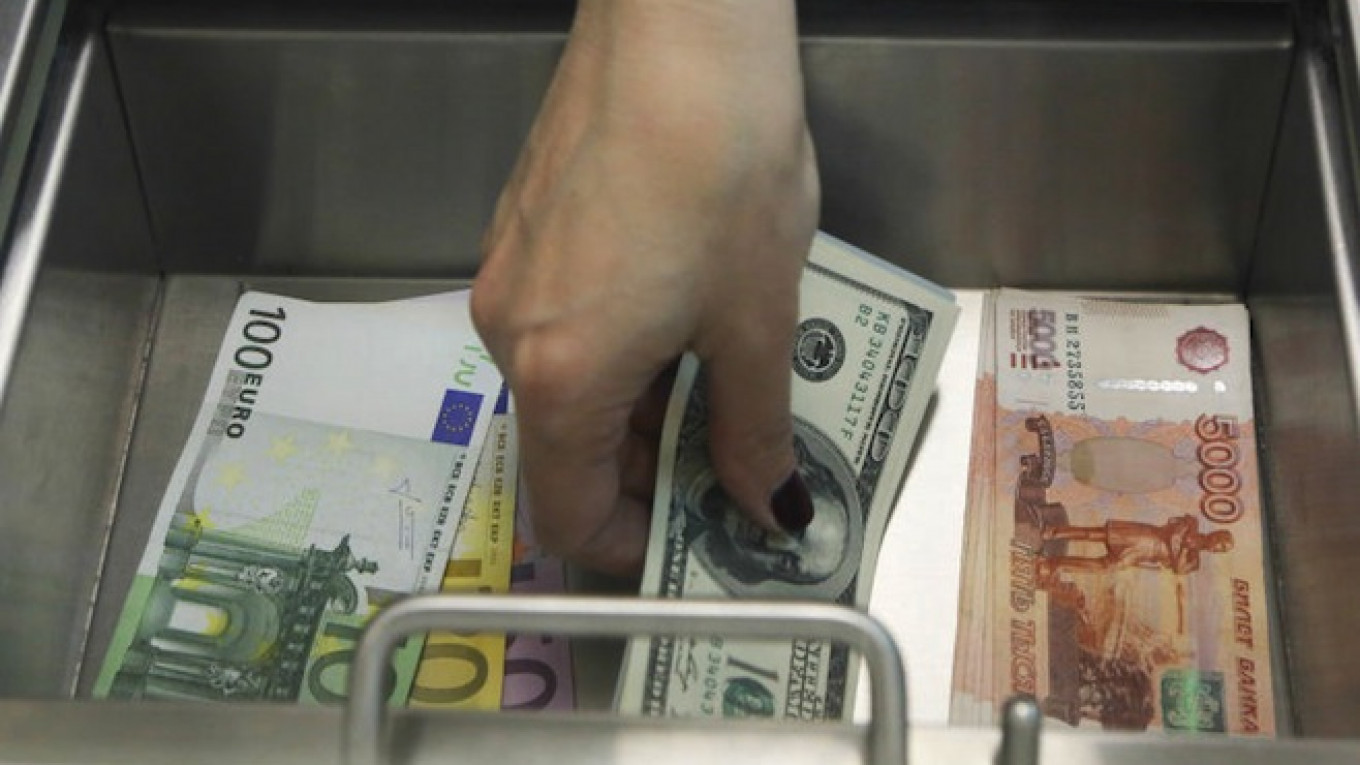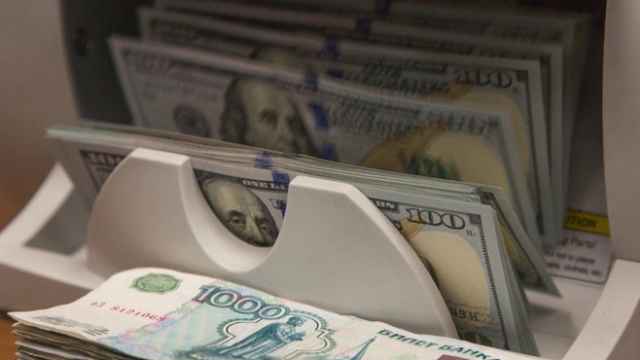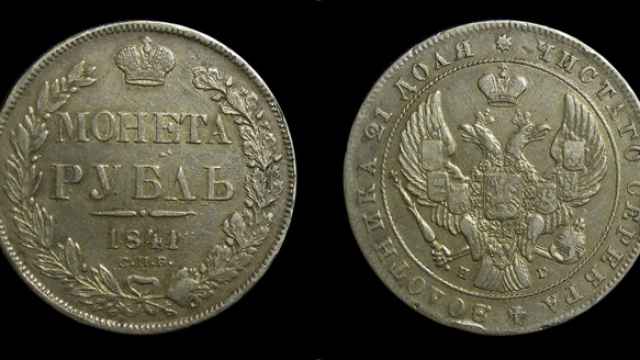The dramatic fall in Russia's ruble slowed on Wednesday, with the government selling foreign currency to prop it up after a 50 percent fall against the dollar this year.
Losses were partly contained by exporters selling dollars in preparation for paying their monthly tax bills but the slide was less precipitous than in the past two days when it fell about 20 percent against the dollar.
At 1008 GMT, the ruble was down around 1.6 percent against the dollar at 68.58 rubles per dollar and was 0.3 percent weaker versus the euro at 85.40.
The ruble has come under heavy selling pressure this week, forcing the Central Bank to increase its key interest rate by an unexpected 650 basis points — an emergency move that did little to buttress the currency.
"What we're seeing now is the result of choosing the wrong time to float the ruble," analysts at Bank Zenit in Moscow said in a note, following the Central Bank's decision last month to float the currency.
Drawing comparisons with the global financial crisis of 2008/09, they wrote: "In contrast to the situation in 2008-09, the market isn't sure that the Central Bank will come out to defend the ruble at a firm price."
The situation poses a major challenge for President Vladimir Putin whose popularity, based partly on providing stability and prosperity, is at risk from the ruble's decline, which is damaging Russia's credibility among investors.
Putin holds his annual end-of-year news conference on Thursday, when he will field questions from a studio audience ad well as from television viewers around Russia, and is expected to comment on the ruble's decline.
His press secretary, Dmitry Peskov, was quoted by Kommersant newspaper as saying the president did not plan to make any "special declaration" and was not expected to comment in detail before the news conference.
Putin failed in a state-of-the-nation address on Dec. 4 to offer any "big ideas" to turn around the economy — which is sliding towards recession after being hit by Western sanctions over the Ukraine crisis and by a fall in the global price of oil — on which the Russian economy is heavily dependent.
Volatile Trading
The ruble had briefly strengthened on Wednesday after the Finance Ministry said it had started selling foreign currency left over on its accounts — a move seen by traders as an attempt to shore up the currency.
But the ministry later said it had only around $7 billion in leftover foreign currency and that it had not decided yet how much it would sell.
The ruble's slide has stirred memories of the 1998 Russian financial crisis, when the currency collapsed within a matter of days.
Investors are awaiting further concerted action from the government to stabilize the currency market, which has in recent days seen the largest intraday swings since 1998, also prompting increased public demand for dollars.
Market participants said exporters were selling foreign currency on Wednesday in targeted amounts, restraining losses in the ruble.
Two traders said they did not believe the Central Bank was intervening heavily in the market, and a currency dealer at a large Russian bank said he believed exporters were having their arms twisted to sell their foreign currency earnings.
Russia's Central Bank has conducted over $80 billion in forex market interventions this year to defend the ruble, which has been dragged lower by falling oil prices, Western sanctions over Ukraine and an increasing sense of market panic.
The bank on Wednesday said it had conducted $1.961 billion worth of forex market interventions on Dec. 15.
A Message from The Moscow Times:
Dear readers,
We are facing unprecedented challenges. Russia's Prosecutor General's Office has designated The Moscow Times as an "undesirable" organization, criminalizing our work and putting our staff at risk of prosecution. This follows our earlier unjust labeling as a "foreign agent."
These actions are direct attempts to silence independent journalism in Russia. The authorities claim our work "discredits the decisions of the Russian leadership." We see things differently: we strive to provide accurate, unbiased reporting on Russia.
We, the journalists of The Moscow Times, refuse to be silenced. But to continue our work, we need your help.
Your support, no matter how small, makes a world of difference. If you can, please support us monthly starting from just $2. It's quick to set up, and every contribution makes a significant impact.
By supporting The Moscow Times, you're defending open, independent journalism in the face of repression. Thank you for standing with us.
Remind me later.






